Kalporz X Monolith Cocktail: TRICKY ‘Fall to Pieces’
October 8, 2020
Album Review/Nicola Guerra

Continuing with our collaboration with the leading Italian music publication Kalporz a short summer break, the Monolith Cocktail will be cosying up and sharing reviews, interviews and other bits from our respective sites each month. Keep an eye out for future ‘synergy’ between our two great houses as we exchange posts.
This month Nicola Guerra goes deep in analysing trip-hop luminary Tricky’s Fall To Pieces album.
TRICKY ‘Fall to Pieces’
(False Idols, 2020)
I spent the whole summer thinking about Tricky. Not specifically about him and not even about the huge tragedy that afflicted the former couple Adrian Thaws (aka Tricky) and Martina Topley Bird (the suicide of their daughter Mazy Mina on 29 May). No, I thought about how crucial to Tricky’s career was a gloomy record like Pre-Millenium Tension. An album that was sacked after the great success of Maxinquaye, a milestone in trip-hop, and which, incredibly, he pulled out of it in an oblique and really personal way. So, I thought, from the pedestal of the world to the suburb of the soul the step was short. But how can you face the opposite? How do you react when the darkness is greater than you can imagine? Look for the light or sink without going back up?
Fall to Pieces does not give answers. The fourteenth (!) work of the Bristol artist is deliberately unfinished, almost as if to re-emphasize the inability to concentrate on details but leave the instinct to communicate something free. But what? What do you try to say when the world collapses under your feet? What do you say when really “Hell is round the corner”? The song that most explains this non-form of self-analysis is ‘Running Off’, a metropolitan tarantella that contrasts the melody of slow and powerful basses that could sink to infinity. Instead, one minute forty-four and you change register. Why not go deeper? Because it hurts too much to investigate. It hurts too much to try to understand.
It is better to hover in search of beauty. In search of Pop, as good Tricky says (“Fall Please”, splendid piece that hides love). Then comes, in the middle, “Hate This Pain”. “What a fucking game What a fucking game I hate this fucking pain I hate this fucking pain Was crying, endless coast Baby girl, she knew me most I hate this fucking pain I hate this fucking pain At ten, I’ll take a flight Try to be there, I guess I might I miss my baby while I fly In my head, I want to die…” I want to die, the former Tricky Kid whispers angrily (one of the few songs sung by him, the rest is entrusted to the female voices of Oh Land and Marta Ziakowska).
Instead, music wins. Once again.
Hi, my name is Dominic Valvona and I’m the Founder of the music/culture blog monolithcocktail.com For the last ten years I’ve featured and supported music, musicians and labels we love across genres from around the world that we think you’ll want to know about. No content on the site is paid for or sponsored and we only feature artists we have genuine respect for /love. If you enjoy our reviews (and we often write long, thoughtful ones), found a new artist you admire or if we have featured you or artists you represent and would like to buy us a coffee at https://ko-fi.com/monolithcocktail to say cheers for spreading the word, then that would be much appreciated.
Our Daily Bread 403: Bastien Keb ‘The Killing Of Eugene Peeps’
October 7, 2020
Album Review/Dominic Valvona
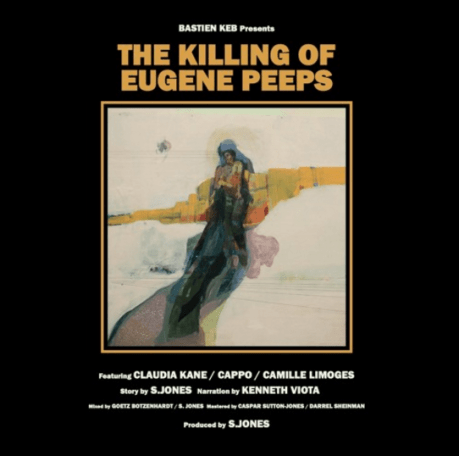
Bastien Keb ‘The Killing Of Eugene Peeps’
(Gearbox Records) 9th October 2020
The soundtrack to an American-noir-meets-Jackie Brown-meets-cross-continental-cult-60s movie that’s playing out in the head of Sebastian Jones, this ambitious suite of partly lulled and narrated cinematics, instrumentals and set pieces is as diaphanous as it is mournful. With a wide lens Jones (under the nom de plume of Bastien Keb) languidly drip feeds his fatigued melancholy, anxieties and deepest thoughts through a sorry tale of death and despair; as unveiled by a gonzo/Burroughs monologue style gumshoe, and sung, cooed by a fragile soul.
An ode we’re told to Italian Gallo paperbacks on screen, crime flicks of many other kinds and French New Wave cinema, The Killing Of Eugene Peeps mixes genres and influences up into a nostalgic opus that also has something to say about the draining mental stresses and indolent fatalism of the modern world too. Jones, using music as some kind of therapeutic outpouring, impressively managed to find the strength and will to create this impressive (if downbeat and aching) album whilst working a hard slog in a warehouse each night: The exhausting effects of which Jones says turned him into a zombie for a year.
The talented multi-instrumentalist, apart from guest spots by Kenneth Viota, Cappo and Camille Imogues, even played, recorded and produced this whole album single-handedly.
A work in three parts (the film score, soundtrack and incidental music), the dead-body-in-the-room Peeps is not so much told as a murder mystery but dissected in the form of soliloquys and resigned derisions on how this sad tragic event unfolded.
There’s plenty of title riffing on those crime flick inspirations, and musically Jones uses a leitmotif of nods to Lalo Schifrin, Issac Hayes, Alessandro Alessandroni and Krzysztof. A recurring San Fran/New York 70s detective movie and TV sound can he heard on the opening ‘Main Title’, which sounds like Hayes conducting an elegiac Corleone death march side-by-side with a New Orleans band, as a proto Tom Waits drawled figure narrates our city skyline information. Yet musically Jones moves on with the very next track, the soulful oozing pained ‘Lucky (Oldest Grave)’, which has an air of both a choral Clouddead (especially Yoni Wolf) and TV On The Radio about it. Sometimes the vocals are double-tracked, with one track being slurred as to sound almost drugged and lethargic. By the time we reach ‘Theme for An Old Man’ the brass and timpani detective noir is mixed seamlessly with jazz, soul and trip-hop (imagine Four Tet playing around with Portishead). And then the dreamy fluty gauze of ‘All That Love In Your Heart’ evokes some kind of 60s Italian or French flashback.
Echoes of dub, vibes, Ethno-jazz, Bernard Estardy, Miklos Roza, James Reese And The Progressions, Curtis Mayfield and hip-hop follow. Deft Nottingham rapper Cappo switches the narrative and sound, letting loose to a zappy 70s cult score with a consciousness left to roam freely flow on the ominous ‘Paprika’. A jazzy vision of Mike Patten and Jean-Claude Vannier’s creative partnership one moment, a wah-wah soul maverick cop score the next, Jones eclectic musicianship produces a modern noir both poignant and clever. All those various strands are pulled together for a sophisticated despair and eulogy, but also curiosity. This is a most beautiful, ambitious if often traumatic inquiry of a fully released drama, a filmic album of great depth and scope that has Jones channel his personal struggles to the soundtrack of poignant drama.
Reviews
Brian Bordello
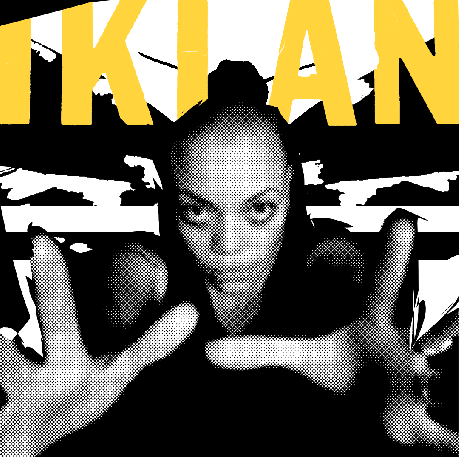
The cult leader of the infamous lo fi gods, The Bordellos, Brian ‘Bordello’ Shea has released countless recordings over the decades with his family band of hapless unfortunates, and is the owner of a most self-deprecating sound-off style blog. His most recent releases include The Bordellos beautifully despondent pains-of-the-heart and mockery of clique “hipsters” ode to Liverpool, the diatribe ‘Boris Johnson Massacre’ and just in the last month, The King Of No-Fi album. He has also released, under the Idiot Blur Fanboy moniker, a stripped down classic album of resignation and Gallagher brothers’ polemics.
Each week we send a mountain of new releases to the self-depreciating maverick to see what sticks. In his own idiosyncratic style and turn-of-phrase, pontificating aloud and reviewing with scrutiny an eclectic deluge of releases, here Brian’s latest batch of recommendations.
IKLAN featuring Law Holt ‘Suffer 2’
(Soulpunk) Single/24th September 2020
This is unusual and I like it a great deal: an atmospheric almost psychedelic chant of darkness depression and suffering; a track of true warmth and soul that is normally lacking in so much of the music I get to hear, sometimes sparse cold synths and a heavenly voice is all that is required.
Juanita Stein ‘Snapshot’
(Nude Records) Album/23rd October 2020

Sometimes you need to feel pain to know you still exist, other times you need to sing about it, and other times you need to listen to other sing about it. This is a case in hand with Snapshot, an album of well-played melancholia that engulfs you in swathes of memories of the little glories of life and the senses of loss, guilt, regrets and hopes one feels as they approach middle age.
Snapshot is one of those albums you can feel yourself getting attached to; one of those albums you will automatically put on when you get up in the morning or one of those you play as you sit alone in the evening tide of your existence losing yourself in the beauty of Juanita Steins songs and the smooth ache of her voice. Yes this is one of those albums that will slowly become like one of your best friends; one you will never feel like not seeing or spending time with, which goes to show that the art of songwriting is just that: an art that paints pictures with the melodies and words, and that over used phrase the magic of music, could rightly be used in this case as the album conjures up all kinds of sublime images and feelings. Snapshot is an album of true beauty and worth.
Marten Larka ‘Parfum De Nuit / Je Suis Un Rocker’
Single/30th October 2020

I may not be the best at speaking French and it’s many years since I was expelled from school, but even I know “Je Suis Un Rocker” means “I am a rocker”, and what I love about this single is I think he might be a bit off his rocker as well, which I like as all the best people I find have a slightly away with the fairies eloquence about them and this double tracker is a lovely thing. What is there not to love about it? Beautiful melodies, lo-fi attitude and it does have a bit of the Serge Gainsbough’s about it, which to my mind is always a good thing. A big thumbs up from me, or “un gros pouce en l’air” even.
The Cult Of Free Love ‘Visions’
Album/19th September 2020
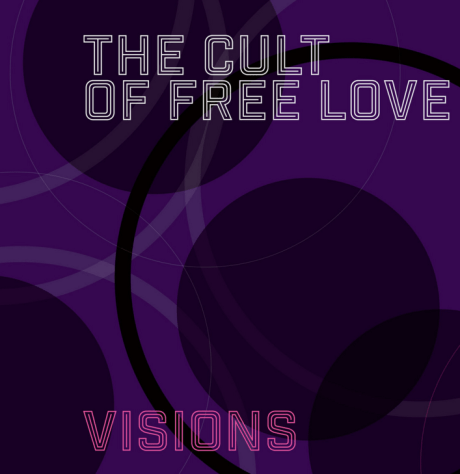
What we have here is the first release from the born again influential underground label Northern Star; a label that released the four CD Psychedelica series of compilations that caught the mood and excitement of the bourgeoning new psychedelic scene of the time. This series of releases influenced many a new band and caught some now very well known and established bands early in their careers. So to kick off the rebirth of the mighty fine label we have the second album from The Cult Of Free Love and to be honest if this album had been released on the Fruits Der Mer label it would have already sold out and been acclaimed as a modern psychedelic masterpiece. Yes, this album is that good.
Orb like trance and late 80’s acid house mingle with the lost summer of love of ‘67 to weave a spell of blissed out magic. There is no one highlight on Visions as the whole album is one long stream of melody and blissed out splendor. This album I cannot recommend enough to anyone with a love of modern psychedelia or somebody wanting to know what it was like to visit the legendary Hacienda in its pomp: An album to turn this winter of discontent into the third summer of love.
Le Couleur ‘Silenzio’
(Lisbon Lux Records) Single/24th September 2020
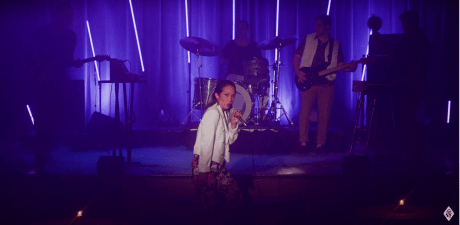
This is a disco sausage of a track, the kind of thing we used to soak up in the late 70’s by the Dooleys and the like. That is no insult, as much as the Dooleys were reviled by the serious music snobs of the days they made some rather splendid pop singles and this is indeed a rather splendid fun pop song that should be soaked up and danced to and enjoyed.
Flavigula ‘Jēmaraz’
(Submarine Broadcasting Co.) Album/September 15th 2020

I think I’ll call this “modern art atmospheric jazz”. Why? I hear you shout, yes you at the back screaming what the hell is modern art atmospheric jazz. Well you cretin this is modern art atmospheric jazz. Charles Mingus has a salad with Ryuichi Sakamoto whilst listening to the brain patterns of Zappa whilst watching black and white flashbacks of Delia Derbyshire getting undressed: that is atmospheric jazz. And if it is not that, what the fuck is it?!
Yes this is a strange old album for these strange old times, but what do you expect from the wonderful Submarine Broadcasting label. You are not going to get an album of Instagram friendly booty shaking smartphone paps are you now. SB release thought provoking atmospheric hugging slices of art melancholia. Which Flavigula do very well. It is the sound of a breeze overestimating its own power and causing ripples in the sea of self-doubt soundtracked by the faint beating heart of a lost angel in jack boots: an album of beautiful extremes.
Nick Frater ‘Fast & Loose’
Album/19th September 2020

Any album that kicks off with a groovy 70’s spy like film theme instrumental is alright with me and then proceeds to take us down the avenue of perfect pop 70’s style where the musings of an Andrew Gold or Todd Rundgren in a mellow mood might reside. Things only get better and better, from the beautiful ‘The Ship Has Sailed’ to the even more baroque beauty of ‘Moonstruck’ – a track worthy of the zombies at their finest.
This is an album that will have all those power poppers doing cartwheels and even might actually be one of those very rare albums that will bring them to total agreement that this album is indeed worthy of the tag power pop: it certainly has power and it certainly has pop and is certainly a pure delight to listen to. One of pure pop sunny delight sunshine pop at its finest.
Reviews
Dominic Valvona

In this amorphous crisscross of genres and borders I take a look at the latest in the label Night Dreamers ‘direct-to-disc’ series, a dynamic live album of fresh performances from Istanbul’s legendary souk reggae/dub and Krautrock psych legends BaBa ZuLa; Analog Africa delve through the stranger corners of the “B-movie” Colombian label Disco Machuca on their upcoming La Locura de Machuca compilation; and Daniel O’Sullivan explores library music for his latest transformation, a series of instrumental albums in collaboration with KPM.
Two front vocalists step away from their bands to go solo, with Ghent stoner/alt-rock band Wallace Vanborn frontman Ian Clement returning to the fold after many travails with a personal songbook collection, See Me In Synchronicity, and Diamond Thug’s Chantel Van T going out on her own with a debut country blues imbued songbook, entitled Nicalochan.
There’s also a label special, with three recent and upcoming ambient and experimental imbued records from the North American hub Somewherecold Records: an ambitious cosmic suite of Kosmische analogue synth odysseys from Giacomelli, snapshots, threads and lingering traces of esoteric and ether materialised country and bluegrass guitar sketches from Droneroom, and an emotive suite of love-lost movements from Vision Eternel.
BaBa ZuLa ‘Hayvan Gibi’
(Night Dreamers) Album/2nd October 2020
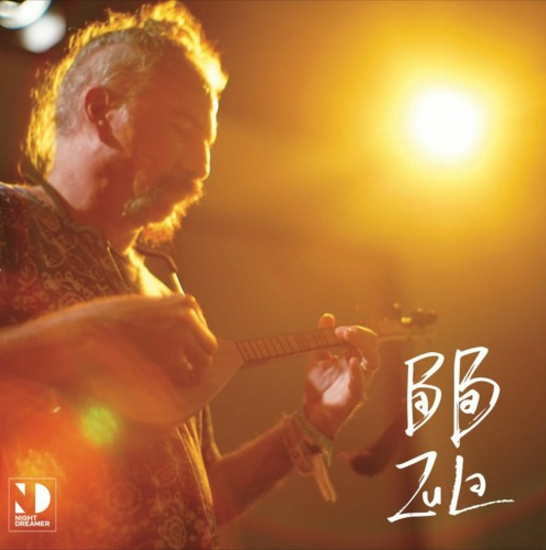
The latest release in Night Dreamer’s “direct-to-disc” series stars the rebellious stalwarts of Anatolian cosmic dub and psych, BaBa ZuLa: a three decade spanning Istanbul group originally birthed from the embers of the band ZeN.
Fusing the folkloric with solar flares of Krautrock, souk reggae, 60s and 70s Turkish psych and cosmic-blues the rambunctious group come on like a Sublime Porte vision of Can’s Ege Bamyasi and Soundtracks albums, only replacing much of the Teutonic legends setup with more traditional instruments like the “oud” and “saz”: albeit electrified and fuzzed up to the gills. That Can reference isn’t so surprising, as the BaBa have worked with the band’s late human metronome Jaki Liebezeit on numerous occasions: his two-way influence felt and inspiration noted on BaBa’s 2019 album Derin Derin. That same 2019 album, like so much of their output, was originally produced for a soundtrack, a documentary about falcons. And this latest “live” and direct special showcase includes a number of such tracks scored for film and stage; it also, like that falcon inspired work captures the materializations, mood, feelings of a menagerie of symbolic animal subjects.
Recorded before lockdown in the pre-pandemic nightmare, Hayvan Gibi (which means ‘to act with the natural grace of an animal’) includes six almost untethered, unleashed vivid performances from the Istanbul mavericks. It’s an album that seeks to fulfil the “live” feel and energy that some fans have commented has been lacking on previous studio albums. Invited to the Artune Studio setting in Haarlem by the label, they were encouraged to freely take-off on a flight of Eastern fantasy; encouraged to also riff on and extend past glories too. “A musician’s dream” as the band’s electric, scuzzy defacto leader and founding member Osman Murat Ertel puts it, this, also challenging, method of recording and cutting a disc from start to finish on one session gives them that energetic impetus. It also showcases each of the band’s talents. On the elliptical rhythmic Can-like dervish ‘Sipa Dub’ (also known as “The Foal”), the group’s braying oud soloist and keyboardist Periklis Tsoukalas gets to shine and sing a kind of spiritual Sufi-imbued emotive intensity on a song about an Aegean coast donkey and its foal. Percussionist virtuoso Ümit Adakale is unleashed unaided on the drilling, rattling and hotfooted breakbeat ‘Nal’ (or “Horseshoes”).
Old favourites like the ‘Çöl Aslanlari’ (“desert lion”) composition, originally made for Antonie de Saint-Exupéry’s stage production of The Little Prince, go off on a long improvised peregrination of clopping psych-rock and shimmering cymbal washes, whilst the group’s earliest groove, ‘Tavus Havasi’ (which furnished the soundtrack to the Tabutta Rövasata film) assails close to the mooning of Guru Guru and a Turkish Bar dance.
A let loose BaBa ZuLa is a most incredible experience; a scuzzed, scuffed, trinket shimmery, rippling and blazing rhythmic energy and dynamism both intense and yet also a mirage of reggae and dub imbued Anatolia mountain gazing. It’s also a reminder of what we’ve been missing in these dragging pandemic restrictive times.
Further Reading…
BaBa ZuLa ‘Derin Derin’ here….
BaBa ZuLa ‘XX’ here…
Various ‘La Locura de Machuca: 1975 – 1980’
(Analog Africa) Album/16th October 2020
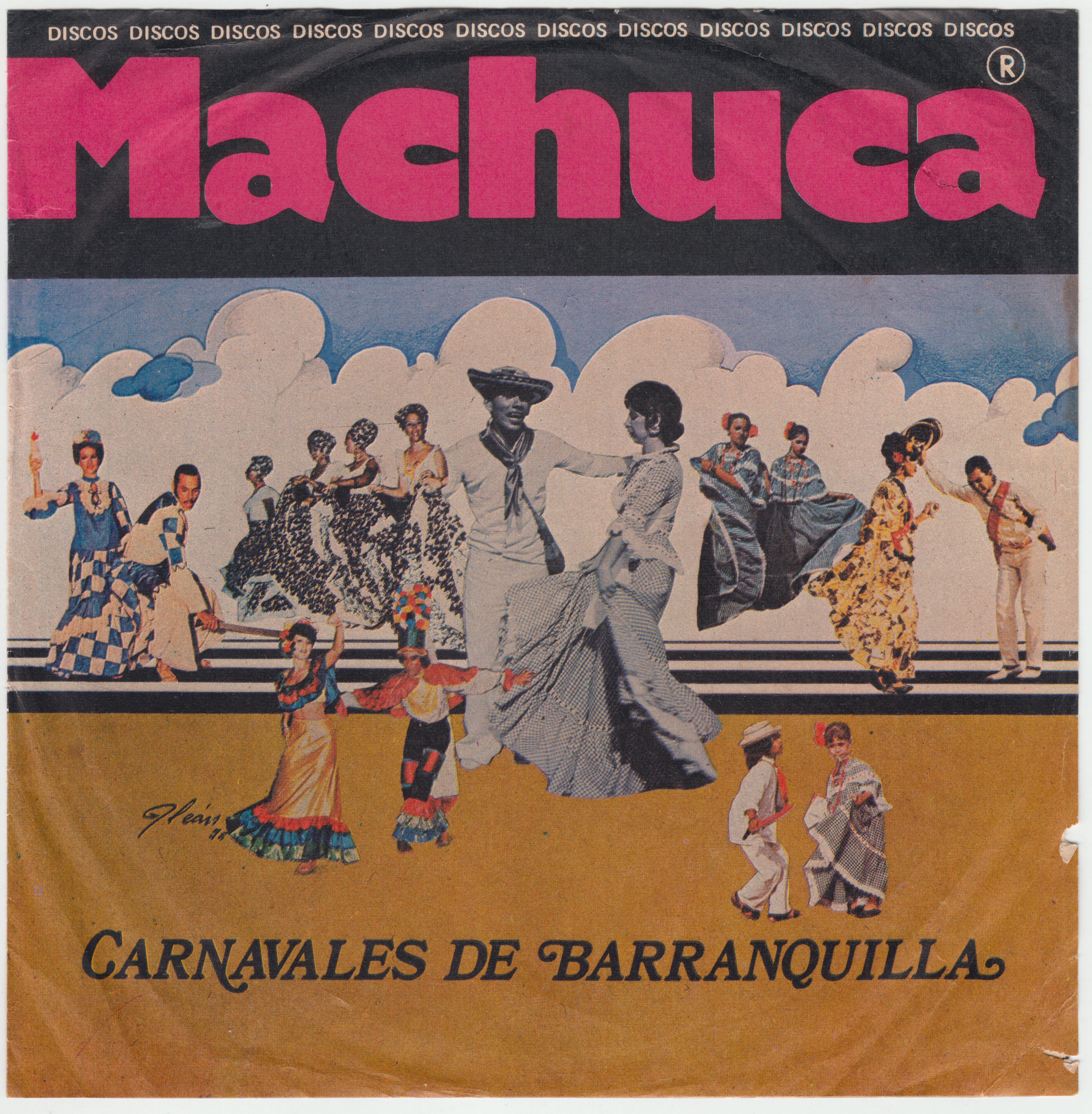
Quite possibly the kookiest oddity so far in the Analog Africa catalogue, this distant outlandish relative to the label’s Diablos Del Ritmo: The Colombian Melting Pot 1960 – 1985 compilation from 2012 is the sort of “B-movie” discovery you’d expect Finders Keepers to release. From the same international Colombian gateway of Barranquilla as that collection’s purview, La Locura de Machuca: 1975 – 1980 features a similar spread of Afro-Colombian saunters, scuttles and scratchy percussive funk as that record, yet finds a twist: a kink.
For all the familiar traces of that folkloric electrified Cumbia, the Caribbean-African-Colombian hybrid Champeta Criolle, and Congolese rumba (to name just a few styles), the music that flourished from the Colombian underground is…well, different. Much of this is down to the genius and bizarre mind of the former tax-lawyer turn record company executive Rafael Machuca, who wowed and seduced by the Barranquilla music scene jacked in the day job to set-up and sit behind the control desk as the producer of his own label enterprise, Disco Machuca. This was the heady mid 70s, an age in which Colombia’s music scene was thriving with the sounds of imported nuggets and blasts from the African continent. Though native dance styles such as Bolero and Vallento still rocketed up the charts, the fervor was for a spread of Afro prefixed sounds that proved popular at the neighbourhood sound-system joints, known as “the picos”. The locals would in time add more traditional flavours, including the already mentioned versatile Cumbia, but also more modern influences such as psychedelic music and disco.
Machuca channeled that exciting dance mix with his unique label of specially put-together one-offs and more established mavericks; the often experimental and kitsch productions of which is described as the “B-movies of Colombian music” by the label’s stalwart recording engineer Eduardo Dávila. Some of that self-depreciative description is warranted for the label’s roster of artists and acts, but also for Machuca’s habit of just creating from scratch a studio band to front one-off singles and albums when he couldn’t find the right band to realize whatever vision he had leaping about in his head. Two of which, the mono skiffley itching and squiggly, Stylophone like buzz and gargled organ Samba Negra and the bongo rattling, carnival lolloping space age garage band El Grupo Folelórico, lasted only the time it took to enter the studio and press stop on the recording desk. Both of these outlets feature heavily on the compilation. Though the El Grupo Folelórico’s binary data zapping Afro bustle ‘Tamba’ qualifies as the closet of these tracks towards that B-movie status.
The label could accommodate such fancies with the money they made from more established and popular stars; such as Alejandro Durán (left off this more unconventional comp) and Aníbal Velásquez (who does feature with his slightly unhinged belly laughing and hurried Cumbia track ‘La Mazamorra del Diablo’). “Fringe artists” like La Bande Africana, King Somalie, Conjunto Barbaco and Aberladro Carbono were able to cut loose off the back of those hit-makers. The first of those names lends the collection a salacious boy/girl hush and sigh of Gainsbourg meets Bollywood in a Colombian coastal town, with their coquettish and playful ‘Te Clavola…Mano’. King Somalie meanwhile riffs on the “funky monkey” with a talky Afro-boogie and turns in a sexy fun conversational on ‘La Mongui’.
Personal favourite of mine is The Grupo Bela Roja, or to be more exact their both swooning and jaunty lead singer who channels a young Miriam Makeba on the beachside ‘Caracol’.
There’s much to discover from this sometimes-unhinged label, yet nothing so avant-garde or “loco” as to neglect an essential rhythm or hypnotic good groove. Samy Ben Redjeb’s decade-long-in-the-making project unearths some mesmerising rarities from the stretched-descriptive scenes of Afro-Caribbean and Afro-Colombian music, throwing in some curveballs and raw 45s.
For those looking for a fresh perspective and for something strange, the La Locura de Machura compilation will fill that need. Ad for everyone else, this is just a great vibrant mad world of South American sounds that deserves space inside your noggin.
Further Reading…
Analog Africa Tenth Anniversary Special here…
Various ‘Jambú e Os Míticos Sons Da Amazônia’ here…
Chantel Van T ‘Nicalochan’
Album/23rd October 2020

Stepping out on her own from the South African dreamy space-indie Diamond Thug, the country blues and folksy lilted voiced Chantel Van T makes a boldly intimate and vulnerable statement on the debut solo songbook Nicalochan. Via a Danish solstice and summers spent contemplating at the shoreline’s edge, the hushed and swooned songwriter/singer opens up in a considered, soothed and sometimes creeping fragile manner over gently sweeping Dylan-esque Western soundtracks, mountain songs, the knowing enchantment of Lee Hazelwood, and lush morning dew yearn of Catherine Howe.
With a maturity and depth beyond her years, the often sadly but constantly dreamy Cape Town artist seems to channel a country twang that evokes shades of Emmylou Harris, Bonnie Dobson, and on the prohibition era Appalachian Lomax ‘Bittersweet Absolute’ a touch of Josephine Foster. Chantel has a voice deep, diaphanous, ached, resigned, and drifting, yet at times almost fatalistic.
An introduction to Chantel as much a candid therapy and chance to let all those thoughts and philosophically poetic questions on what reciprocated love really means (and how far it can be taken), the growing pains of womanhood and childhood.
A suffused accompaniment (all recorded with the Danish producer Anders Christopherson and a small intimate ensemble of musicians) of wallowed brass, softened string caresses, gauzy tremolo twanged and acoustic rhythm guitar, and patted toms and splashes of cymbal provide a subtle stripped backing track. One that sometimes can’t help but meander into Dylan’s ‘Knocking On Heavens Door’ on the leading, waning beauty travail single ‘Rumble And Crawl’, and a 50s yuletide mix of Rosemary Clooney and bobby-sox Spector on the album’s early punt at a seasonal number, ‘Christmas’.
Full of pining, searching affairs of the heart Nicalochan is a most hazy and beautifully executed testament of timeless country blues imbued vulnerability from an artist going it alone: A great debut of understated wisdom and inquisitive questioning songwriting, which I can see making many of the end-of-year lists, including my own.
A Somewherecold Records Special:
Vision Eternel ‘For Farwell Of Nostalgia’ Out Now
Giacomelli ‘Cosmic Order’ 9th October 2020
Droneroom ‘Blood On Blood’ 16th October 2020
All three released via Somewherecold Records.
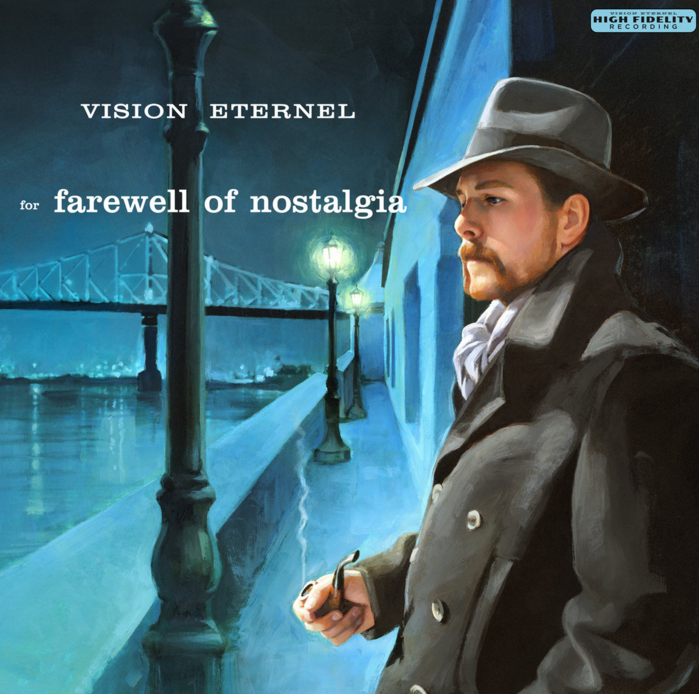
From the highly prolific online magazine/shop-front and facilitator of various underground electronic and experimental artists, a trio of recent refined and concept-bound releases has drifted onto the Monolith Cocktail’s radar: Just three from an exhaustive roster that’s updated weekly. Extensively a soundboard and platform for composers and mavericks alike from both sides of the North American border, Somewherecold Records offer up the intimate and ambitious, depth and the translucent, peregrinations and wanderings with their most recent spread of albums.
The first of these is the grand Kosmische analogue spanning opus from Silicon Valley composer Steve Giacomelli; a triple CD expansive series of cosmic ordered suites that traverse the astral plane, new age transcendence, various thermos, gases and topographic ebbs and flows. Giacomelli’s fourth such album of cosmic ambient minimalism for the label, this celestial and evolutionary mined impressive ARP Odyssey (portable) synth birthed work of thirty-six scales into deep space, refractions of light play, pulse and gravitas uses a number of techniques to accomplish an overall sound of forgotten Sky Record maestros, Tangerine Dream, early Cluster, Tomat and Vangelis. This synthesised vision – that can sometimes err towards the ominous forebode and mystery of Kubrick – synthesis of the abstract, deep space, the inner mind, nature and the heavenly is accomplished with an apparently limited pallet and the use of counterpoint sequences, the generative and a method, favoured by Frank Zappa, called “xenochrony” – that is the extracting of a solo or other part from its original context and placing it into a completely different song/composition.
A three-hour journey through the imaginings of Giacomelli’s inner and outer star-guided mind, compositions vary between the beautiful cathedral-in-the-sky heralded ‘Cosmic Fanfare’ and the Klaus Schulze-rescores-Zardoz forebode and deep space hum of ‘The Best Laid Plans’; from the 8-bit orchestral manoeuvres of ‘SMPTE Of The Universe’ to the heavenly choral-blowing space fantasy ‘Diplodicus Green’, and the tubular generator, dash communicating ‘Remembrance Petition’.
No matter where he guides us, Giacomelli fashions a most diaphanous and mysterious epic. The Cosmic Order is a grand project, nothing short of immersive and starry.
The second of this trio of albums and EPs from the label takes us into the Kosmische-cowboy experimental soundscaping world of the Louisville-based artist Blake Edward Conley. Trading, moseying and meandering under the Droneroom alter ego, Conley pulls together a number of tracks and ideas from compilations for this transformative and transduced album of layered resonating guitar soundtracks and pauses.
A “two-lane blacktop” drive across the imagined travails of an alternative strung-out country and bluegrass accompanied America of gas station stops, mechanical breakdowns, and side road excursions, Blood On Blood gathers those “stray tracks”, threads and “snapshots” to meander through an evocative if distant landscape. Whether inspired by or in their finished state sailing close to, a number of these drowsed post-country instrumentals are dedicated to Conley’s fellow compatriots, and both explorative and old testament liturgy guitar imbued artists: The Tennessee psalm fanning Joseph Allred and folk artist Cole Morse to name just two.
Some of these sonic-thoughts-out-loud ruminations and traverses are more country than others. A certain cowboy swoon can be plucked from the lingering traces of ghostly country blues and bowing vibrato of ‘Truckstop Déjà vu’, and there’s an air of a Lynchian vision of Ry Coder on the galvanized steel gate stick rattled and didgeridoo like drone mysterious ‘And On The Last Day The Land Did Sing Me’. A removed form of Americana, with the tremolo wanes and quivers and spirit all there but veiled by the Baroque, Latin, cosmic and supernatural, ‘Let The Bluegrass Hold My Head’ is anything but. However, the dreamily acid ‘The Coyote Adrift In The Unfamiliar’ evokes a more Kosmische and Krautrock influence; sounding like an esoteric ripple in the fabric by Ash Ra Temple. In fact there’s a lot of spacey spectral leanings, an otherness, even alien, from beyond the ether: There’s even a supernatural enough transmission from that void in the shape of ‘Ghosts For Sale’.
Another impressive if unassuming album for the label that does something different, out there with its source, Droneroom’s Blood On Blood is an incredibly strange album of guitar experimentation that warrants discovery: A cult album in the making.
Back towards the ambient spectrum, the final release in the special is a most emotively drawn and purposeful EP of intimate mood music by the Montréal-based Vision Eternel. Coining the phrase “melogaze” to describe his lush “emo” brand of majestic and caressed swirling feelings, heartbreaks and loves, the band’s founder Alexander Julien soundtracks a love lost affair with a most swaddled suite of ambient music, shoegazing, and semi-classical longings.
Over a quartet of channeled “movements” (rain, absence, intimacy and nostalgia), Julien charts this affair-of-the-heart with a both cinematic and melodious touch. The EP though is a greater conceptual work that even arrives accompanied by a short story and plenty of poetic, stirring baggage. Lingering reminisces pour from this composer’s light yet deep vaporuos yearnings.
On the cover itself, Julien is painted as some kind of Left Banke thinker meets Graham Greene Third Man and shoe-string Marlowe; a riff on 50s and older covers of that vogue. And so nostalgia is certainly evoked on this almost timeless EP of abstracted emotionally pulled memories made tangible. It’s actually a most lovely, touching trembled and graceful encapsulation of the themes; beautifully put together. It’s also entirely different and like all three of these releases pushes experimental, ambient music in different directions, yet never loses sight of taking the listener on those same sonic journeys into the cosmic, imaginary, and intimate.
Somewherecold Records is proving a catalyst and platform for some of the most interesting and ambitious of under-the-radar artists. Expect to see plenty more or their releases on the Monolith Cocktail in the future.
Ian Clement ‘See Me In Synchronicity’
(Cobraside Records) Album/October 2nd 2020

All the better for it, full of sagacious yearning, frontman of the Ghent stoner/alt-rock band Wallace Vanborn, Ian Clement makes a welcoming return to the musical fold with his second solo album See Me In Synchronicity. After many travails and a series of breakdowns, Clement opens up with a songbook collection of musings on troubled romances, escaping, intimacy and more mystical, metaphysical queries on the altered states of consciousness: a subject that stems from the earnest singer/songwriters interest in mysticism and the spiritual, and its place in an increasingly secularized, atheistic Western culture.
Further, as Clement himself illuminates, “mysticism and madness touch each other, even in ordinary life. The daydreamers whose hope lies in love and fantasy or in loneliness or madness, is something that everyone can relate to.” And there is, at least, some of that title’s “synchronicity”; as also reflected on the album cover’s dream state alpine juxtaposed with cityscape and beret fitted beachcomber meandering below a seductive muse collage artwork.
Though far from mystical sounding or esoteric, this is a solid songbook with just enough edge to set it apart from the well-worn tropes and sounds found in most alt-rock of a similar persuasion. For Clement traverses not only hard rock but also country (verging on Americana), indie, post-Britpop and, even, new wave (chugging away tot the dashboard emotional pulling pop motor pop of The Cars on the “consciousness” imbued ‘Turtle & Crow’). And so you can expect to hear a subtle pallet of influences and sounds prompting this brooding but often mature and wise album.
Vocally Clement evokes a touch of Jeff Buckley (via Blackbud’s Joe Taylor) and Mark Lanegan, whilst the mix of blazing rock guitar shadings and hooks leans towards Bends period Radiohead, post-punk and early noughties Bowie. However, the most surprising humbling and yet bittersweet romantic song, ‘Bliss’, strays into the Floydian. There’s also a dappled gospel-tinged organ that keeps popping up throughout the album; a kind of low-key Muscle Shoals vibe.
Making sure this all gels, and offering some of that edge, is the luminary German producer Renė Tinner, who knows a thing or two about pushing the envelope and finding that important synchronicity between the commercial and experimental having worked with such polar opposites as Can and George Harrison. This culminates in a production and sound with depth, soul and a few surprises. Clement unloads his pains and intimate resolutions on a most sophisticated, hard-fought and lyrical work: A brave work at that.
Daniel O’Sullivan ‘Electric Māyā: Dream Flotsam And Astral Hinterlands’
(VHF Records/KPM) Album/23rd October 2020
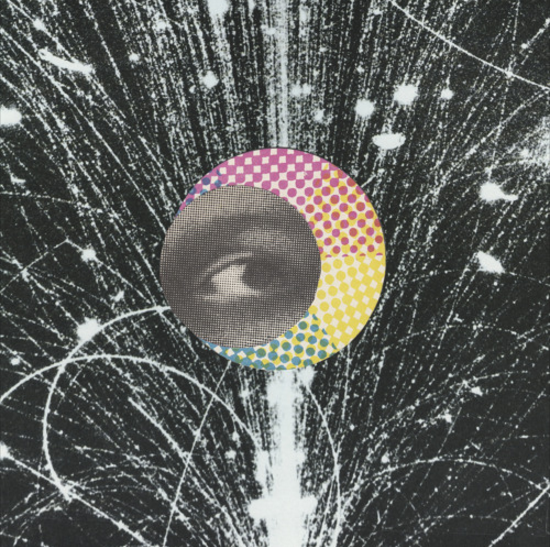
The latest in a long run of explorative transformations for Daniel O’Sullivan, of both Grumbling Fur and This Is Not This Heat fame, sees the London-based musical polyglot traversing the “library music” oeuvre.
Although often the preserve for lovers of cult mavericks and the kitsch, library music is infinite in scope and varies considerably in quality. Often, because of its very nature dismissed as either a pale imitator of the sound and music it’s trying to ape, or void of true artistry and depth: produced in many cases as a background soundtrack and cheap off-the-shelf filler. Of course this is all bullshit, the label itself now so diverse and overused as to include some truly gifted composers alongside one-offs and obscure unknown peddlers of lo fi and unassuming skits. Essentially though, it is seen as music that fits specific criteria or commission, as O’Sullivan puts it, music made “more for functionality than sonic self-portraiture”.
It also includes, in more recent years, an increasing number of artists-in-the-know appropriating library music’s guilty pleasures and forgotten acolytes: Not so much as pastiche but rather in the mode of homage and mining ever more obscure sounds. And so a very much “knowing” O’Sullivan in collaboration with those purveyors of such rediscovered treasures, KPM, invests a lot of time and effort in producing an 18-track suite of sophisticated redolent library music gestures, sweeps, memories and fleeting incipient soundtracks on the first of a trio of such albums. The challenge however is in creating a fully-realised composition with a start, middle and sort of conclusion in short form: every track on the album being more or less under the 3-minute mark.
Delving into the cosmology of the elaborately psychedelic entitled Electric Māyā: Dream Flotsam And Astral Hinterlands you’ll find a full body of atmospheres, inner spaces, emotions, sciences and supernatural elements articulated by a diverse pallet of sounds and instrumentation. O’Sullivan caters for every occasion, from beatific meditation Eastern transcendence (‘Adoring Solitude’) to emerging from a mysterious mist-clearing landscape (‘Butterscotch Broth’) and Tomat evoked celestial cathedrals-in-the-sky (‘Eagle Ears’). And that’s all within the first five tracks: the mystical, the ambient unveiling of inspired scenery and the cosmos. Elsewhere there’s deft evocations of the sort of tender Italian pianist-driven soundtracks of the 70s favoured by Greg Foat (‘Flashbulb Memory’), a bird’s eye view from above wispy, translucent clouds (‘Feathered Earth’), a kooky burbled and steam-post-punk merger of Kraftwerk, Bernard Estardy and Jon Hassell (‘Gray’s March’) and haunted monastic dream muses (‘Sybil’).
From the sublime to the strange, ethereal to the earthy, most bases are covered on this expansive album of the vapourous and gazing. Most of which is beautifully produced and entrancing. Mixing semi-classical with ambient music, avant-garde and electronica, O’Sullivan has created an inspiring sonic journey through library music’s most lunar and traversing, stirring highlights without reverting to that pastiche and lazy homage. It is nothing short of a great piece of instrumental work, the soundtrack to a most wondrous ambitious movie.
Hi, my name is Dominic Valvona and I’m the Founder of the music/culture blog monolithcocktail.com For the last ten years I’ve featured and supported music, musicians and labels we love across genres from around the world that we think you’ll want to know about. No content on the site is paid for or sponsored and we only feature artists we have genuine respect for /love. If you enjoy our reviews (and we often write long, thoughtful ones), found a new artist you admire or if we have featured you or artists you represent and would like to buy us a coffee at https://ko-fi.com/monolithcocktail to say cheers for spreading the word, then that would be much appreciated.